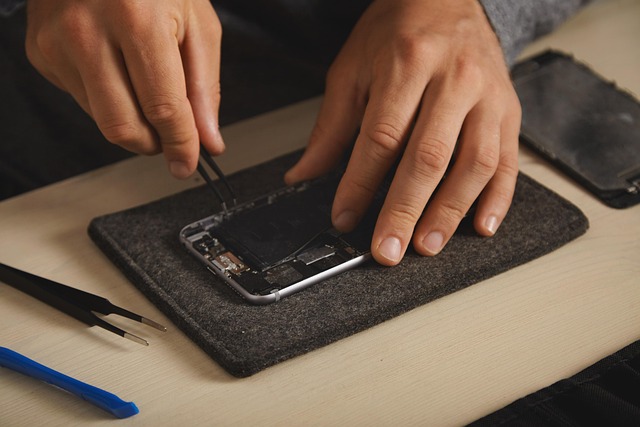The Telephone Consumer Protection Act (TCPA) restricts unsolicited phone calls and texts, requiring cultural institutions in North Kingstown, RI, to obtain explicit consent for promotional purposes. Non-compliance invites severe legal repercussions, including penalties and damages. Museums should engage a TCPA Lawyer Rhode Island or Spam Call Attorney Rhode Island to ensure compliance, maintain institutional integrity, protect visitor privacy, and foster positive relationships within the community. Key responsibilities include educating staff on TCPA guidelines, obtaining explicit consent, managing visitor data securely, and implementing strict procedures against unauthorized third-party calls.
In today’s digital age, cultural institutions like museums in North Kingstown face unique challenges regarding communication and compliance with the Telephone Consumer Protection Act (TCPA). This comprehensive guide delves into the intricacies of the TCPA as it pertains to museums, exploring key provisions and their impact. From understanding museum exhibit alerts to identifying roles and responsibilities, this article equips cultural institutions and their attorneys (including TCPA lawyers in Rhode Island) with the knowledge needed to navigate spam call laws effectively. Learn about legal implications for non-compliance and discover best practices for maintaining TCPA compliance through robust communication strategies.
Understanding the TCPA: Key Provisions and Their Impact on Museums in North Kingstown
The Telephone Consumer Protection Act (TCPA) is a federal law designed to protect consumers from unwanted phone calls and text messages, particularly from automated or prerecorded calls. For North Kingstown’s cultural institutions, understanding and adhering to the TCPA’s key provisions is crucial. These include restrictions on when and how organizations can contact individuals via telephone, with specific guidelines for sales and marketing calls.
Museums and cultural entities must ensure they obtain explicit consent before calling or texting visitors for promotional purposes. This means implementing robust opt-out mechanisms during registration or membership processes. A TCPA Lawyer Rhode Island or Spam Call Law Firm can guide institutions on navigating these regulations, ensuring compliance to avoid potential legal repercussions. Adhering to the TCPA not only protects visitors’ privacy but also fosters a positive relationship between cultural organizations and their communities.
Museum Exhibit Alerts: Are You Compliant with Rhode Island's Spam Call Laws?
Museums and cultural institutions in North Kingstown, like across Rhode Island, must navigate complex legal landscapes to ensure they remain compliant with local and federal regulations. Among these, the Telephone Consumer Protection Act (TCPA) stands out as a critical piece of legislation designed to protect consumers from unwanted phone calls, including spam calls. For arts organizations, this means implementing robust practices to prevent automated or prerecorded messages from being sent without proper consent.
Compliance with Rhode Island’s Spam Call laws is not merely about avoiding penalties; it’s also about fostering positive visitor experiences and maintaining institutional integrity. A TCPA lawyer in Rhode Island can guide cultural institutions through the nuances of this legislation, ensuring they effectively manage exhibit alerts and other communication strategies while adhering to the law. Engaging the services of a qualified Spam Call lawyer or firm in Rhode Island is crucial for organizations aiming to protect their reputation, avoid legal pitfalls, and continue offering engaging experiences to their audiences.
Roles and Responsibilities: How Museum Staff Can Avoid TCPA Violations
Museum staff play a crucial role in ensuring compliance with the Telephone Consumer Protection Act (TCPA) to avoid potential violations and legal repercussions. A TCPA lawyer in Rhode Island can guide cultural institutions on navigating this complex law, which prohibits certain telemarketing practices and spam calls. By understanding their responsibilities, museum employees can protect both visitors and their organization from fines and negative public relations.
One of the primary tasks is to educate themselves and colleagues about acceptable communication methods. This includes obtaining explicit consent for text messages or automated phone calls related to fundraising, events, or other promotional activities. Museum staff should also be vigilant in screening and managing visitor data, ensuring accurate record-keeping, and implementing procedures to prevent unauthorized calls from third-party vendors or affiliates. Regular training sessions on TCPA compliance can help keep everyone informed and minimize the risk of accidental violations.
Legal Implications for Non-Compliance: Potential Consequences for Cultural Institutions
Non-compliance with the TCPA can have severe legal implications for cultural institutions in North Kingstown and across Rhode Island. The TCPA, or Telephone Consumer Protection Act, is a federal law designed to protect consumers from intrusive phone marketing practices, including spam calls. When cultural organizations fail to adhere to these regulations, they risk facing significant penalties and damages.
For instance, a museum that sends unsolicited automated texts promoting its exhibits could be subject to individual and class-action lawsuits, leading to substantial monetary fines. These institutions may also be liable for customer data breaches, as the TCPA requires strict consent protocols for telemarketing activities. Engaging a reputable TCPA lawyer Rhode Island or spam call attorney Rhode Island is crucial to avoiding such consequences and ensuring compliance with this evolving spam call law.
Best Practices for Staying TCPA Compliant: Tips for Effective Communication Strategies in Museums
Staying compliant with the Telephone Consumer Protection Act (TCPA) is crucial for cultural institutions in North Kingstown to avoid legal issues and maintain strong relationships with their visitors. Here are some best practices for effective communication strategies that museums can adopt to ensure TCPA compliance:
Implement robust opt-in mechanisms for all marketing communications, especially when reaching out to the public via phone or text messages. Obtain explicit consent from individuals before sending any promotional content, ensuring they understand they can easily unsubscribe. Train staff on proper call handling techniques and do not use automated dialing systems or pre-recorded messages without prior permission. Personalize communication whenever possible to make it more engaging; for example, using visitors’ names in email newsletters or SMS alerts. Regularly review and update your privacy policies to reflect the latest changes in TCPA regulations, keeping all stakeholders informed about data handling practices. By following these tips, museums can effectively communicate with their audiences while maintaining compliance under the TCPA laws in Rhode Island, avoiding potential issues with a reputable TCPA lawyer or spam call law firm in the state.






